A State against the Nation
March 30, 2007
By Somnath Mukherji
It is the case of a state against the nation: a nation of people that get in the way of progress and development; a nation of illiterate, ill-fed, ill-clad people springing up from within this amorphous glob called the masses. How could these people represent civil-society? Are they not engaged in their struggles of daily subsistence? Surely they have not read Marx, Weber, Foucault or the tomes on developmental economics. How then could they decide what is good for them, let alone what is good for the society?
State repression in India is climbing to a frightening crescendo both in frequency and brutality. There is a widening rift between the state and the nation. Kalinganagar, Singur, Vidharba, Bastar, Nandigram and the arrest of peaceful protesters of Action 2007 have been one instance after another of the brutality and apathy of the state.
Nandigram will remain a blemish on the face of the Indian democracy for a long time to come, unless of course something more gross, inhuman and barbaric takes place. The Govt. of West Bengal rightly claimed that the incidents in Nandigram were the machinations of “outside elements” – they were referring to the people of Nandigram. What they failed to mention was that the new cartographers were redrawing the lines which made the Salim Group and their ilk the insiders and the rural and urban poor the outsiders. If people in their agricultural stupor did not wake up to such updates, who could be blamed?
The imagery and the symbolisms of Action 2007 are revolutionary. Imagine saree-clad women with veils pulled over their heads, standing in front of a marble polished Planning Commission demanding to meet with the Deputy Chairman – demanding a participatory space in the institution whose decisions mean a difference between having a home, hearth and livelihood and not having one, or perhaps even a choice between a can of pesticide and a bullet. The people had come to meet the cartographers of Delhi. If these images are not an affront to democracy then what are? Thousands of policemen firing on hapless women and children? Using landmines to terrorize adivasis reluctant to give up their land? These are perhaps mere acts of legitimising the boundaries where democracy and accountability ends.
Democracy was just going so well for India – the Sensex had finally synchronised completely with the New York Stock Exchange, rising and falling like a shadow; finally the US had started considering it grown up enough to be playing with dangerous toys; all indices were finally climbing – growth rate, literacy, destitution, farmer suicides, FDIs, military expenditure, obesity, HIV rates; so strong was the momentum of democracy that it spread beyond its territory and was successful in luring 8 lakh NRIs to get “Overseas Indian Citizenship”; finally tomatoes could be bought with stickers on them that read “tomatoes”; finally the gnarled lathis (sticks) of the security guards were replaced by shorter machine-finished shiny batons and elastic retractables were appearing everywhere to maintain queues. And just when we were in the final stages of imitation, some “backward” people started putting up a fuss about land, agriculture, submergence and all sorts of unscientific and regressive concerns. Cartographic manipulations were an easy way out to keep the trouble making people at bay.
People are voicing their concerns and the threat to their livelihoods - not through a megaphone or an article in an English daily but through their lived experience. There can be no greater truth than the lived reality (or deaths) of people. Intellectual articulation may be fabricated, confused, or just wrong, but the lived reality of the people is a language of truth. And this is the language that the masses are still speaking – through the hundreds of suicides of the farmers, through the blocking of a village by women and children, through the mass cremations of tortured bodies. The state is deafened by the language it has learnt from the colonisers – a language that treats the masses as specimens to be manipulated, studied and disciplined. It is blinded, deafened and muted by a language of violence that it speaks to its people.
Perhaps we are witnessing a moment of decolonisation in the margins where people are standing up against the processes of marginalization. In their non-imitative language they are saying a resounding NO to creation of poverty, rejecting the processes of social and cultural alienation and desecration of natural resources that concentrate wealth in a few hands. Will the state learn to listen? Will the nation be free?
Also posted in Somnath’s blog
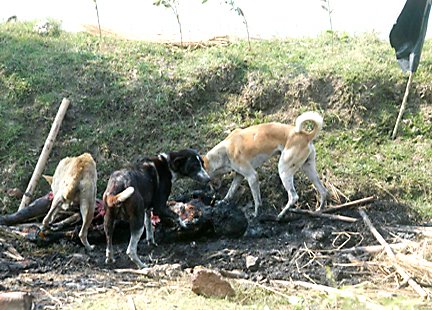

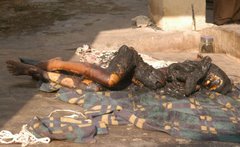
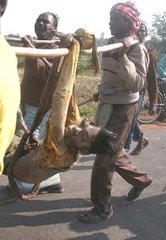
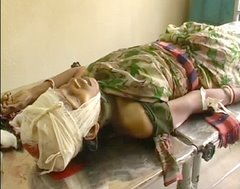

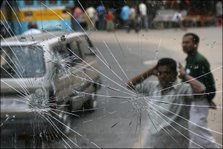
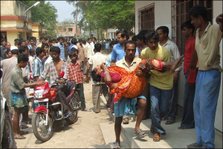

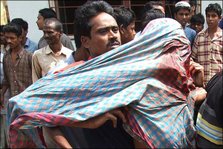


No comments:
Post a Comment